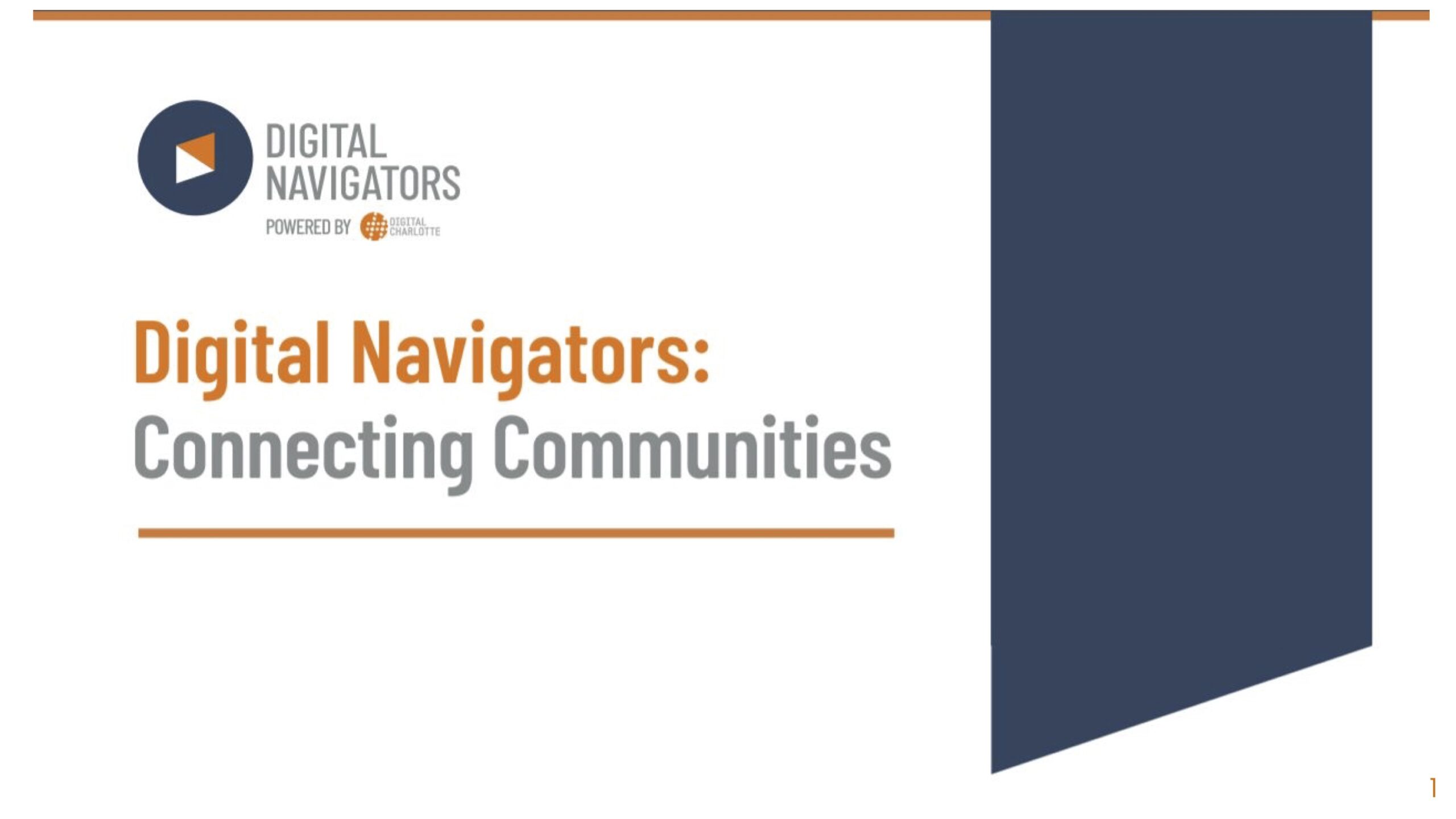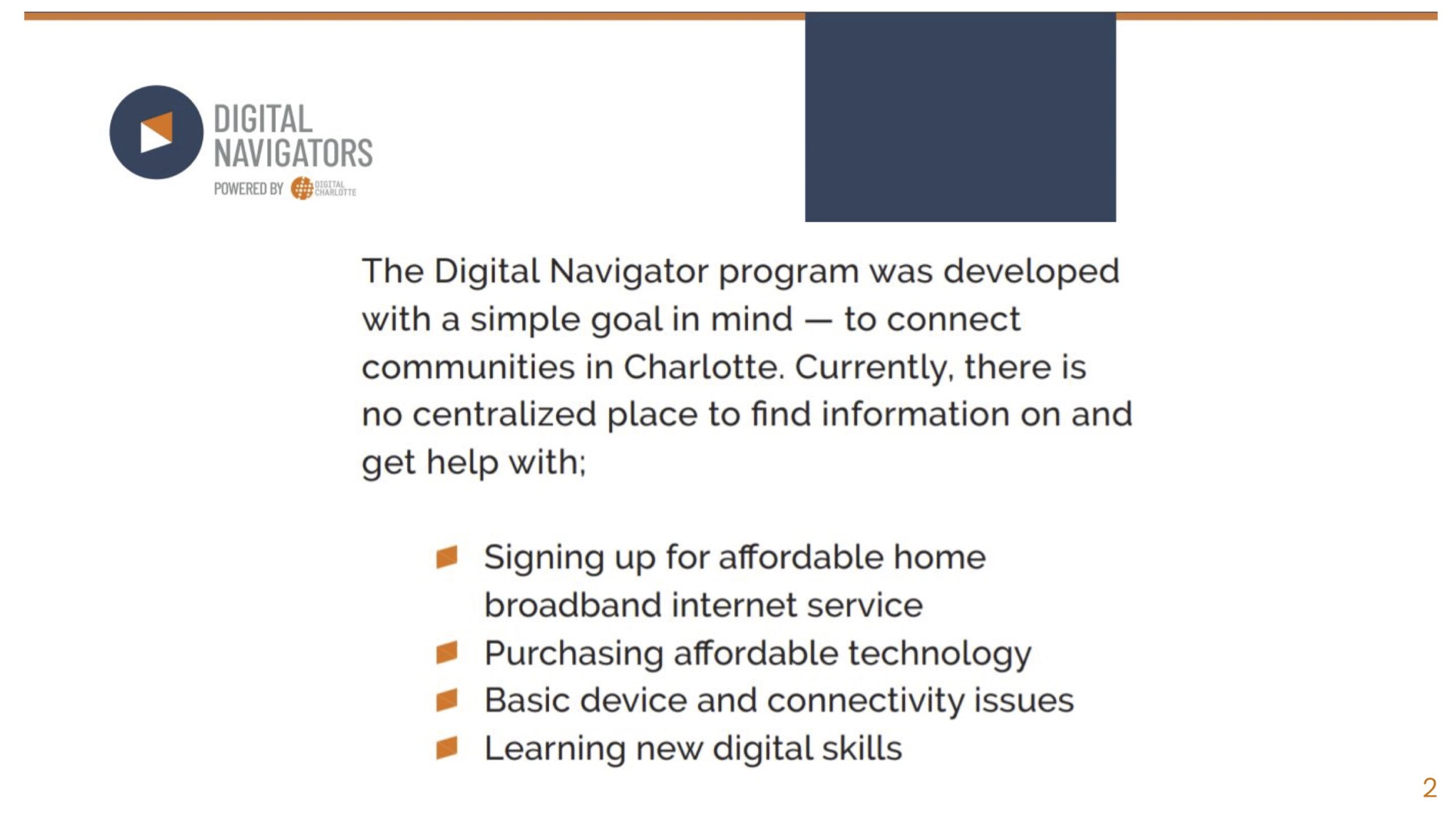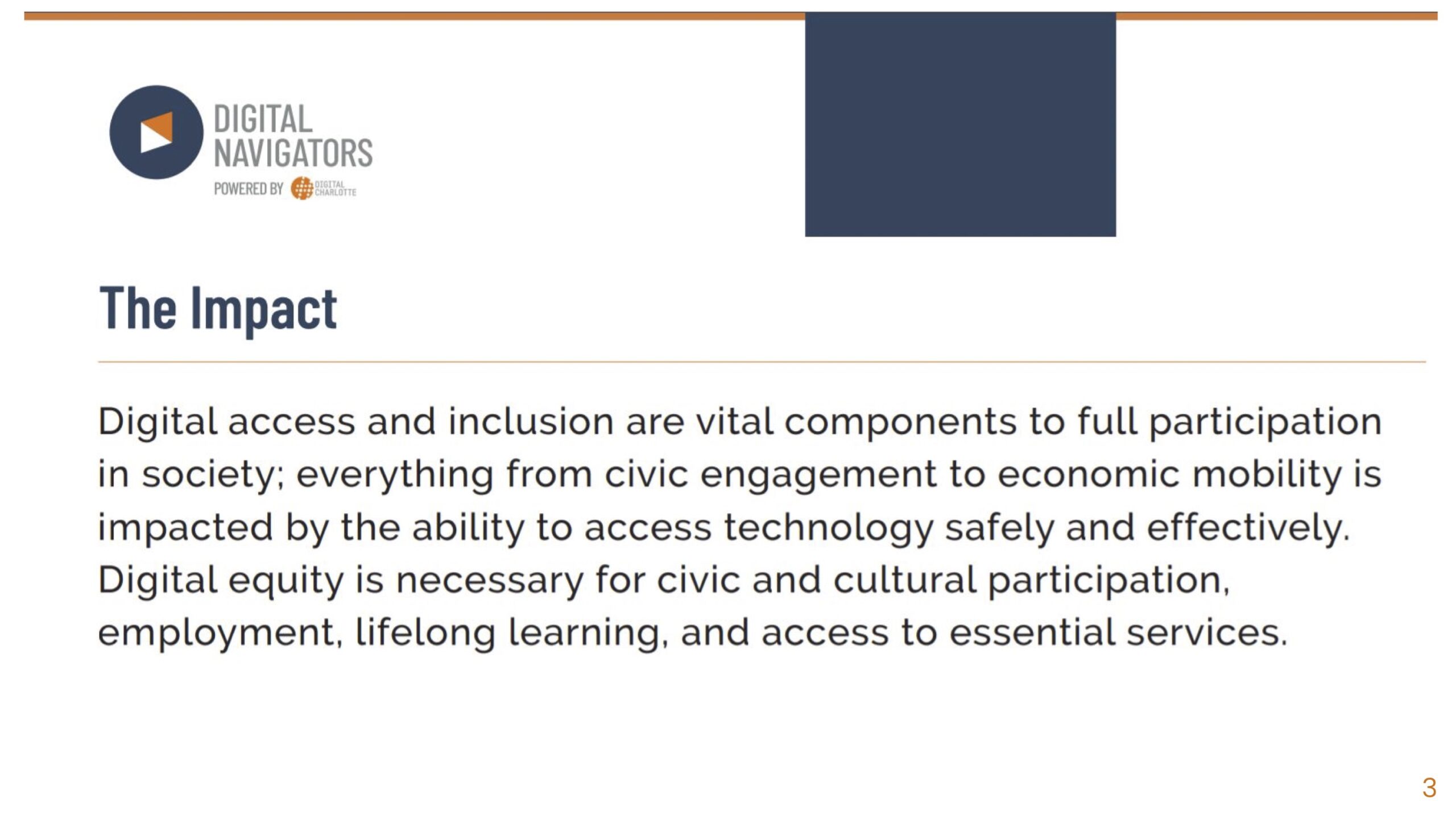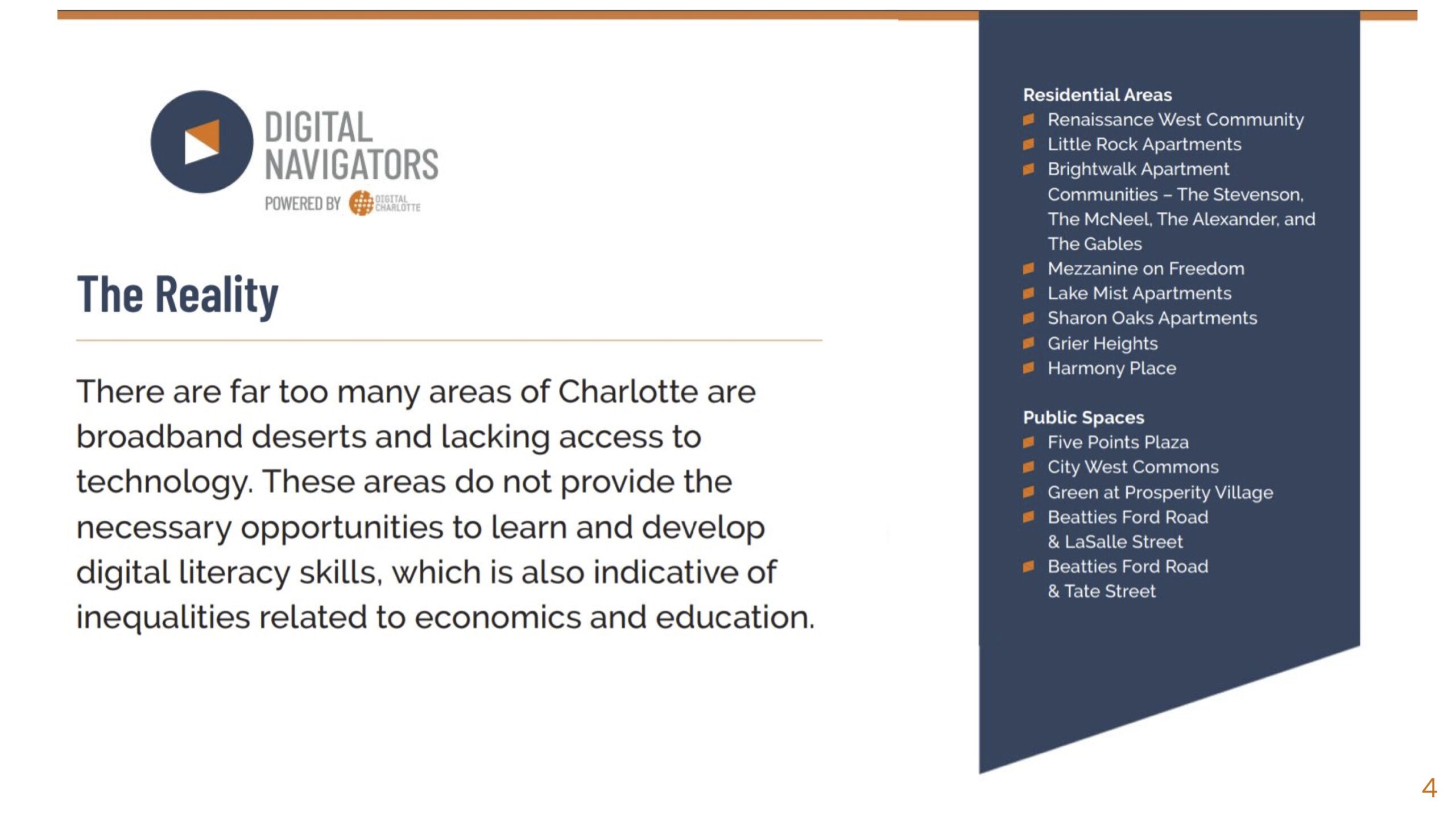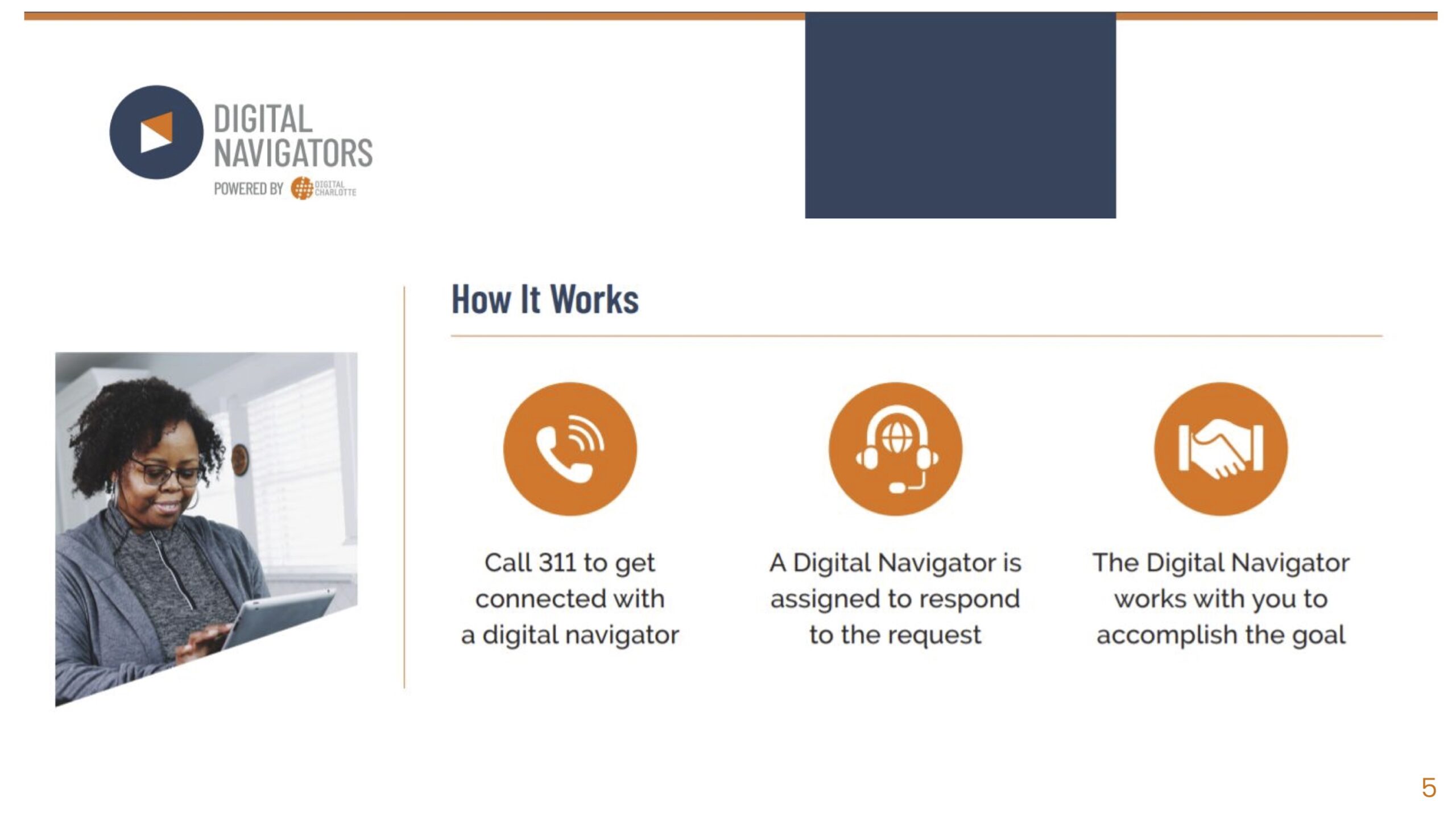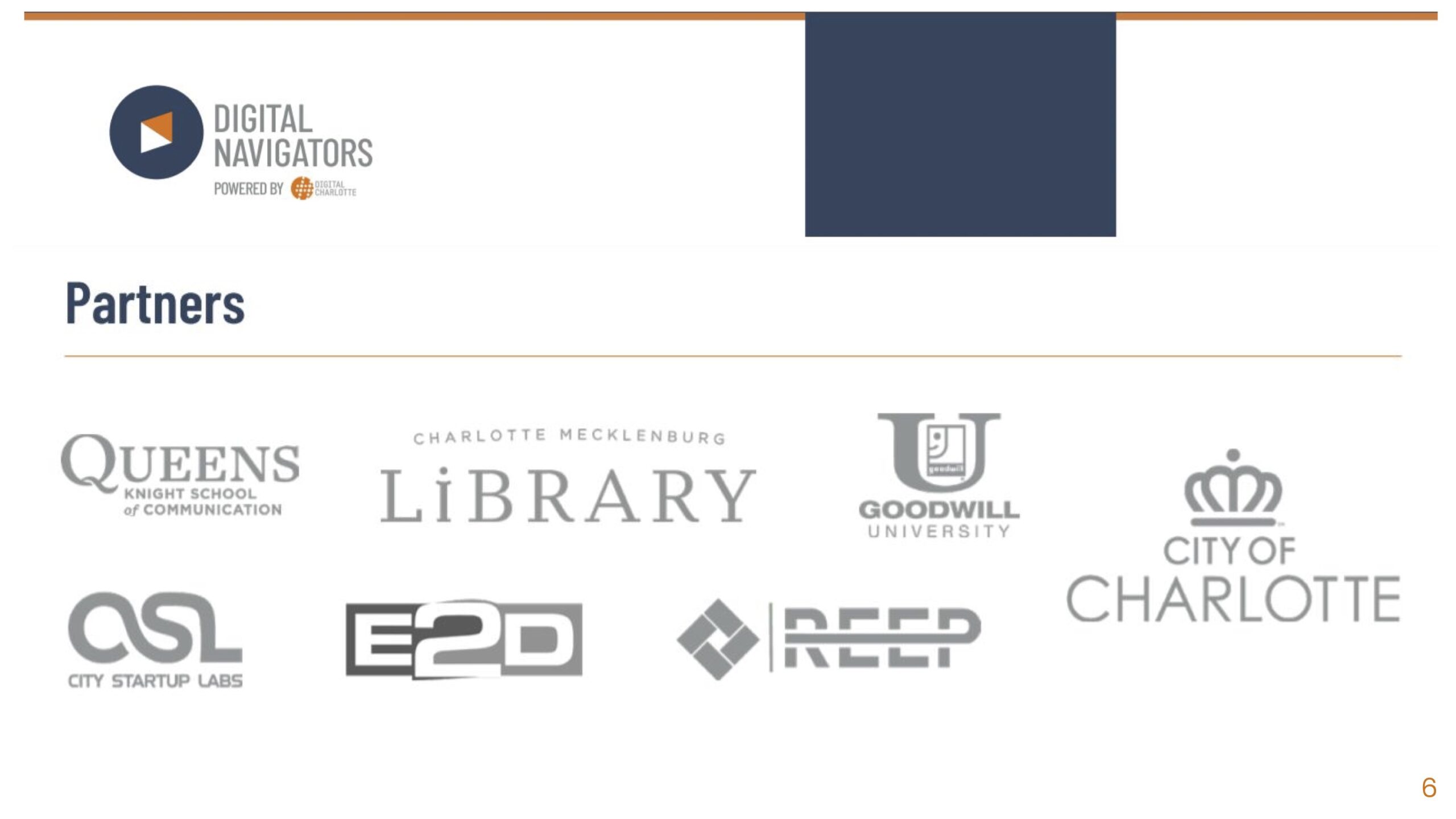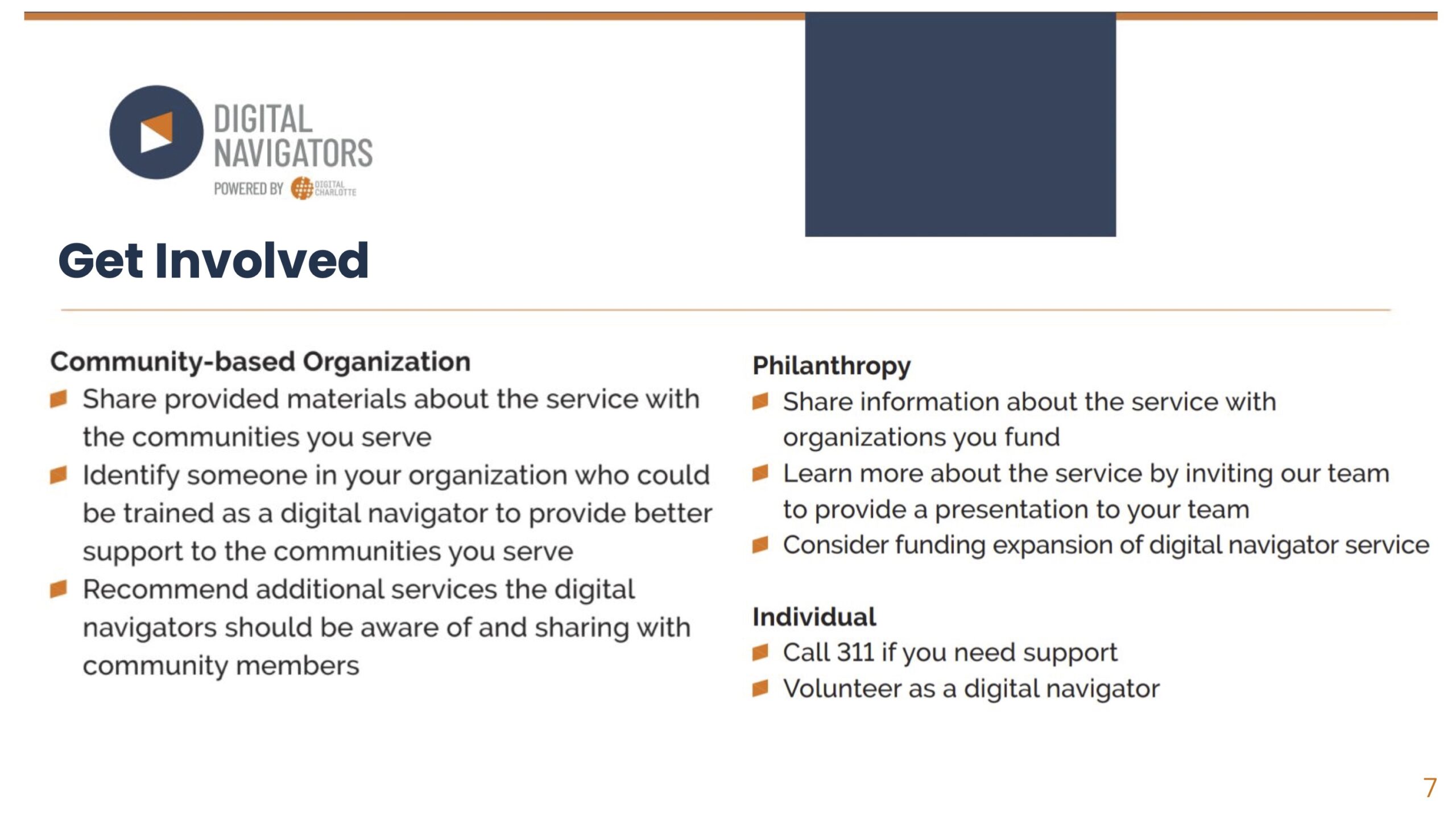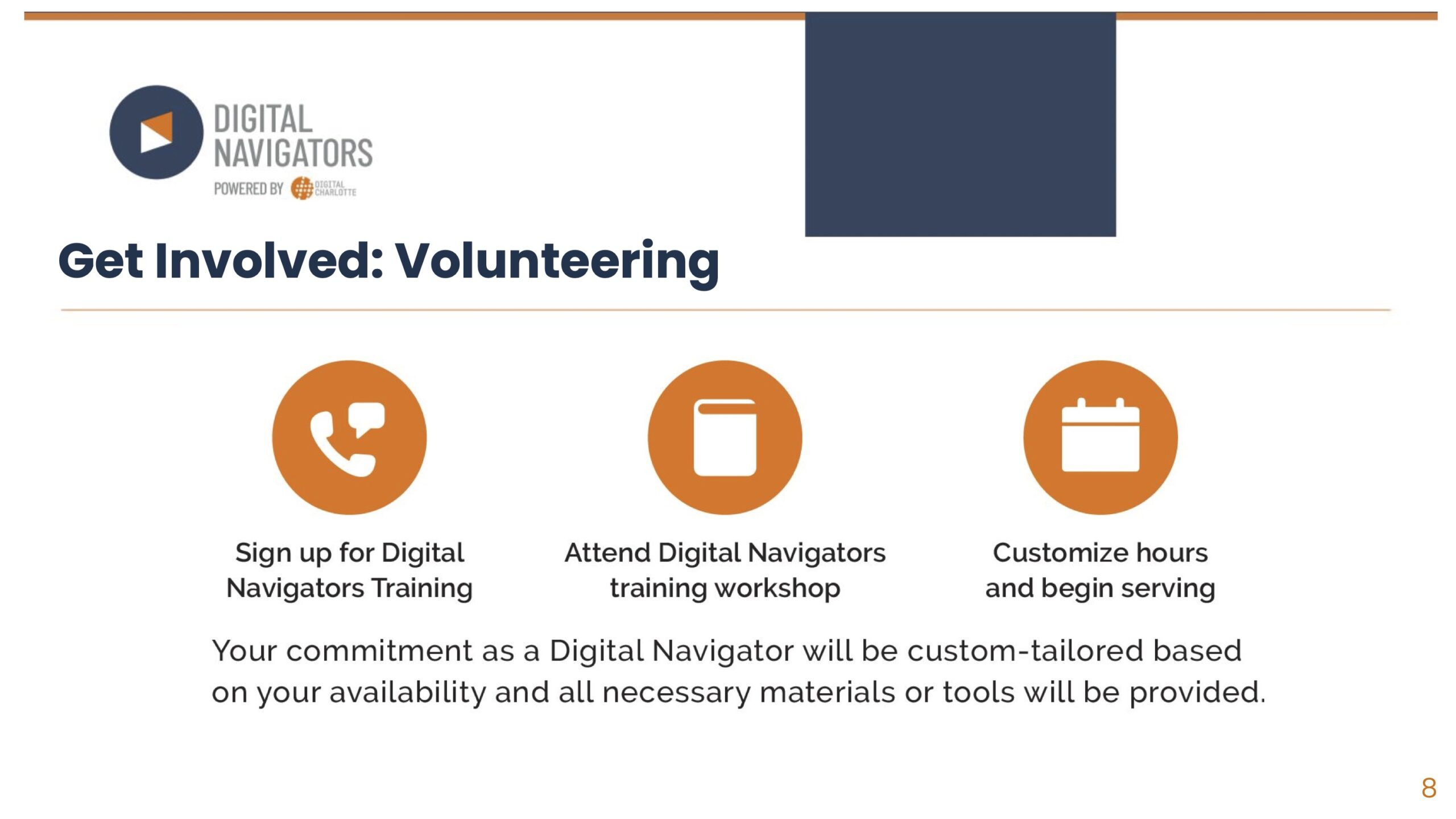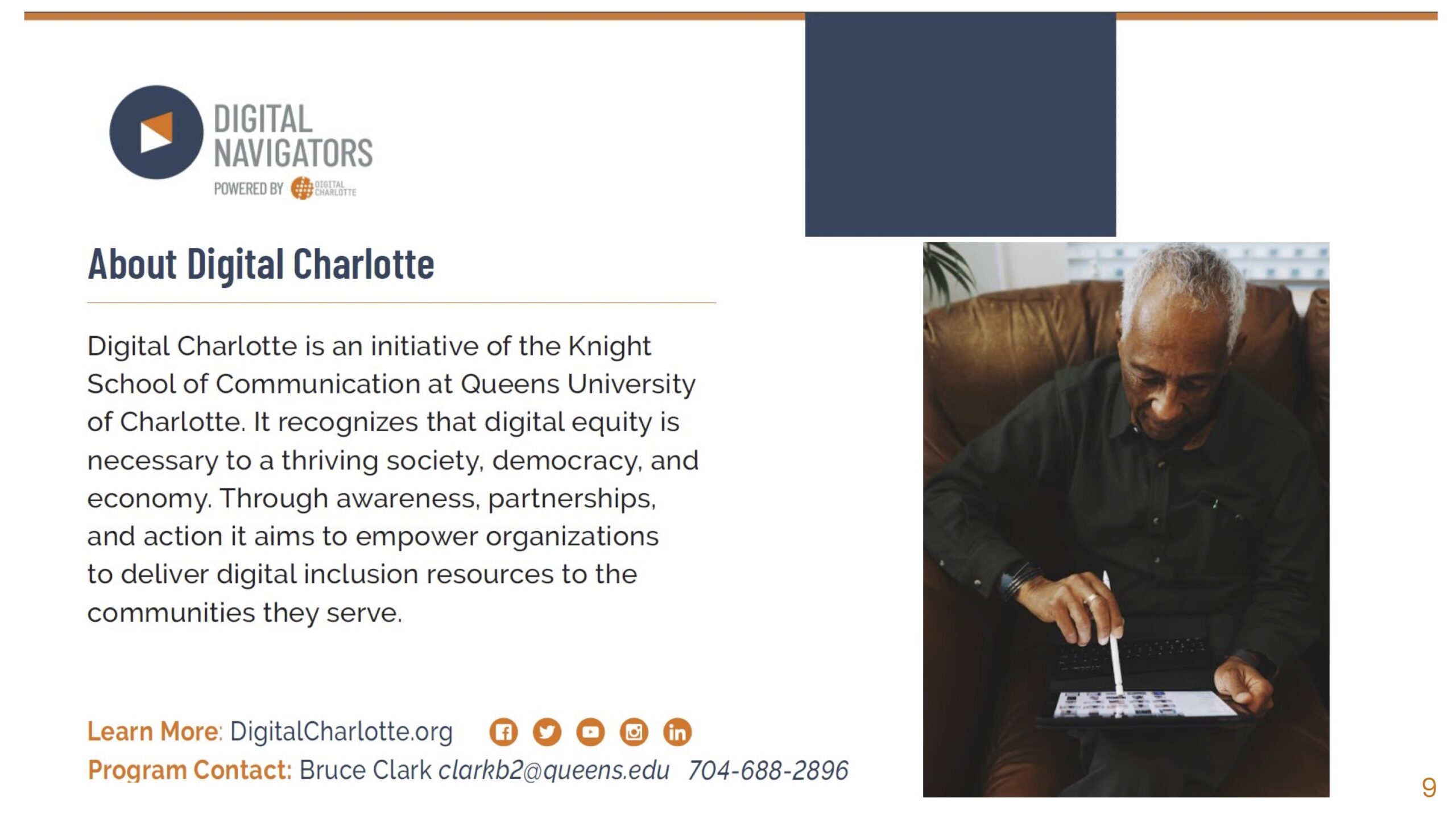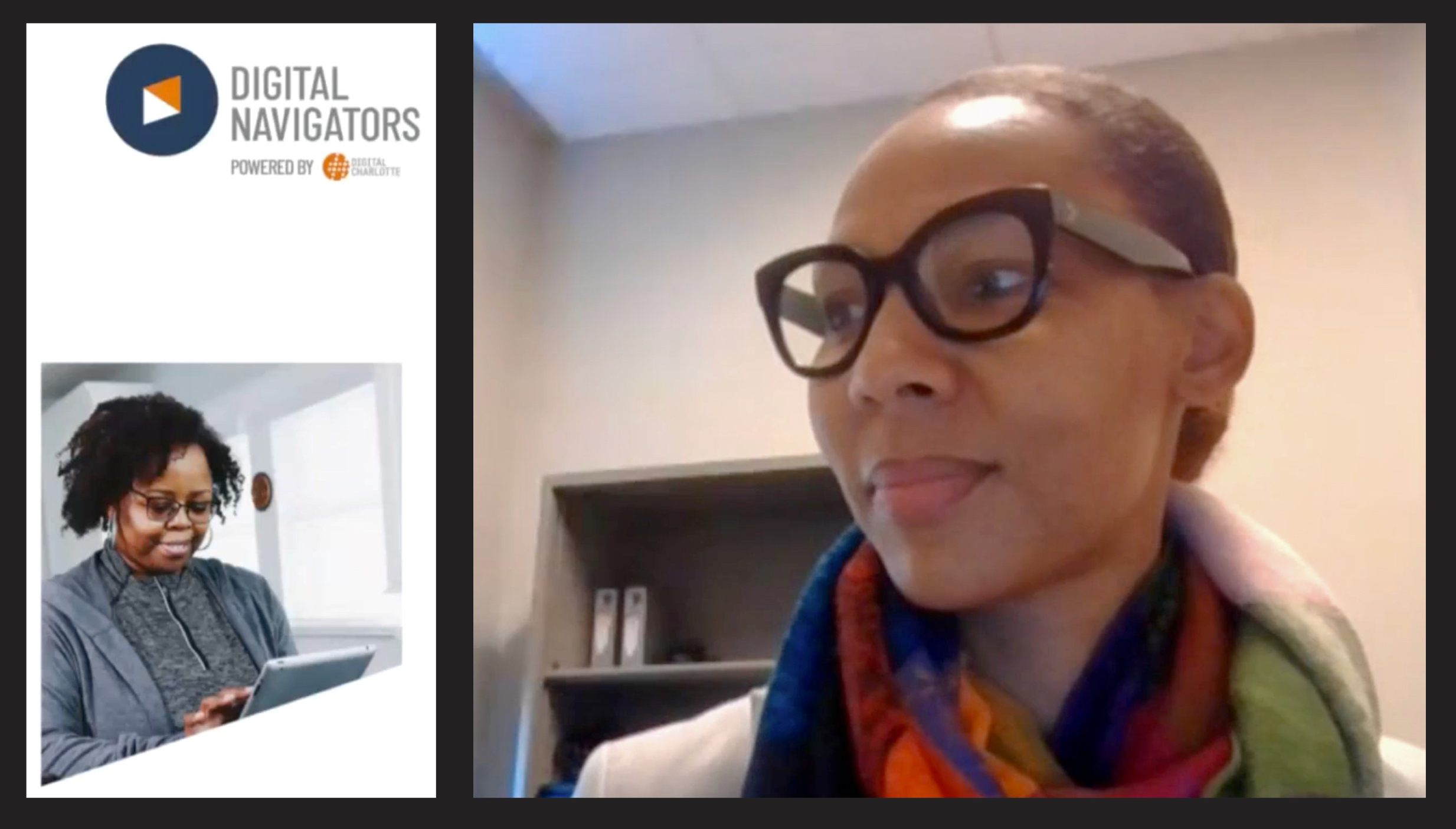
Nov. 2, 2021
Many thousands of Charlotte-Mecklenburg households are caught in the “digital divide,” without access to a near-essential utility of modern life, used now for job applications, banking, bill-pay and even school homework. If you don’t have money to pay for a laptop, or to pay for the Internet wire into the house, or to travel to a parking lot where there’s a free wi-fi signal, you are part of that crowd.
Arrington deals with Charlotte residents on those issues, but she appears even more interested in the human issues behind the divide. They are issues of language and context and confidence, mosty, and today Arrington made a pitch that the Digital Navigators service housed at Queens University of Charlotte can help people learn their way through, to confidence. “You can do this!” she said, is one of her messages. Arrington appears not only to be an optimist, but a patient one as well.
Digital Navigators is knitting together existing community resources – the 311 county help line, Spanish-speaking library employees, community volunteers. The long-term goal is to have volunteer navigators identified in neighborhoods so that neighbor can help neighbor, in person as well as via the phone conversations taking place today.
Arrington’s presentation was light on program structure, budgeting and long-range planning. That may be appropriate, for Monday’s announcement of a major drive to solve digital divide issues as a part of the Mayor’s Racial Equity Initiative may bring new direction and resources to Digital Navigators.
During a discussion of FAQs and videos and other resources that novice Internet could use, Arrington said she believed there might not be any need to re-do much of what is already available on the Internet. As an example, she cited a page on Internet safety posted by the Goodwill Community Foundation. The GCF’s entry-level computer tutorials are here.
Slides shown during the presentation are on this page below the video. A PDF of the slides may be downloaded here.
